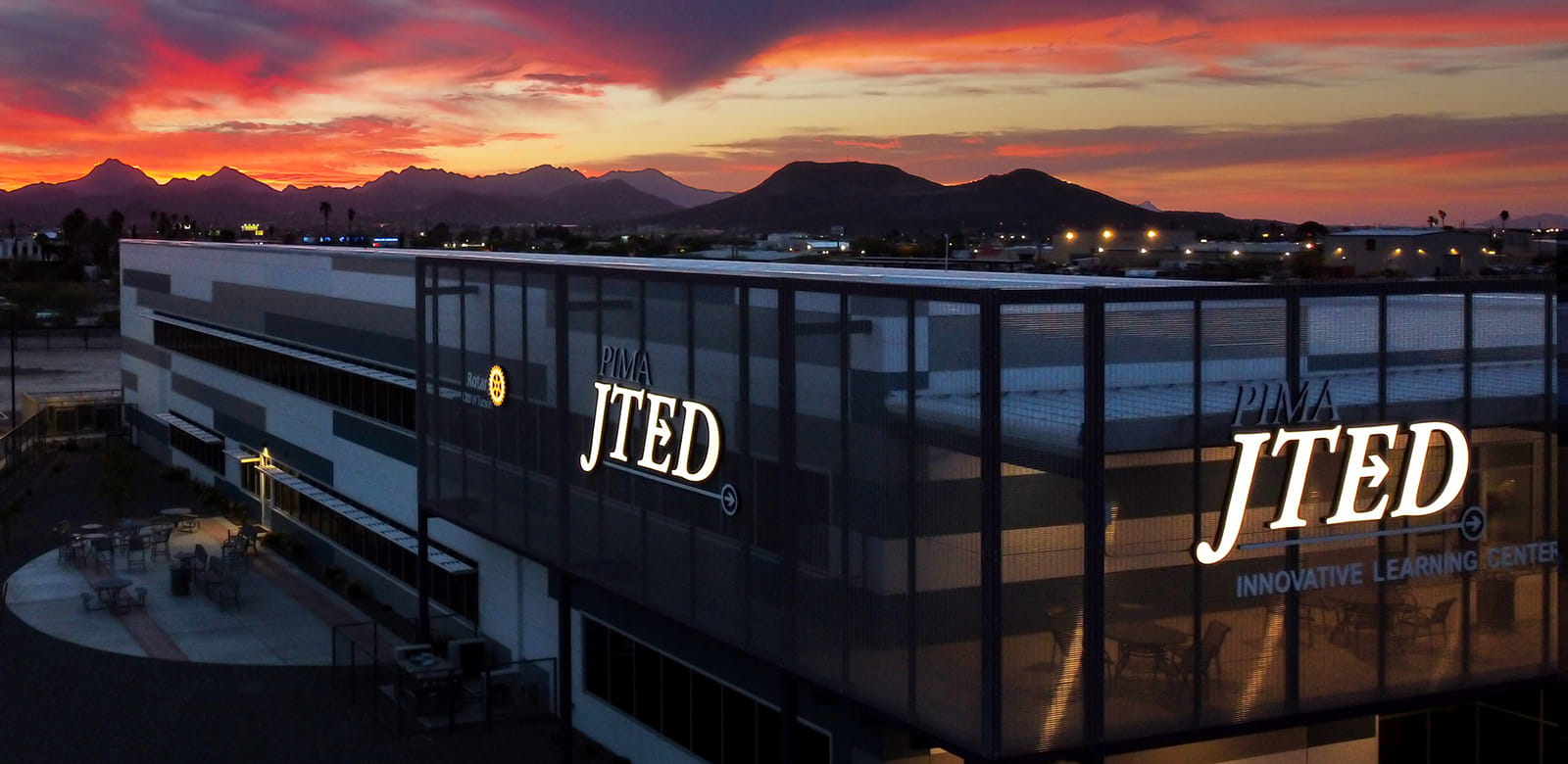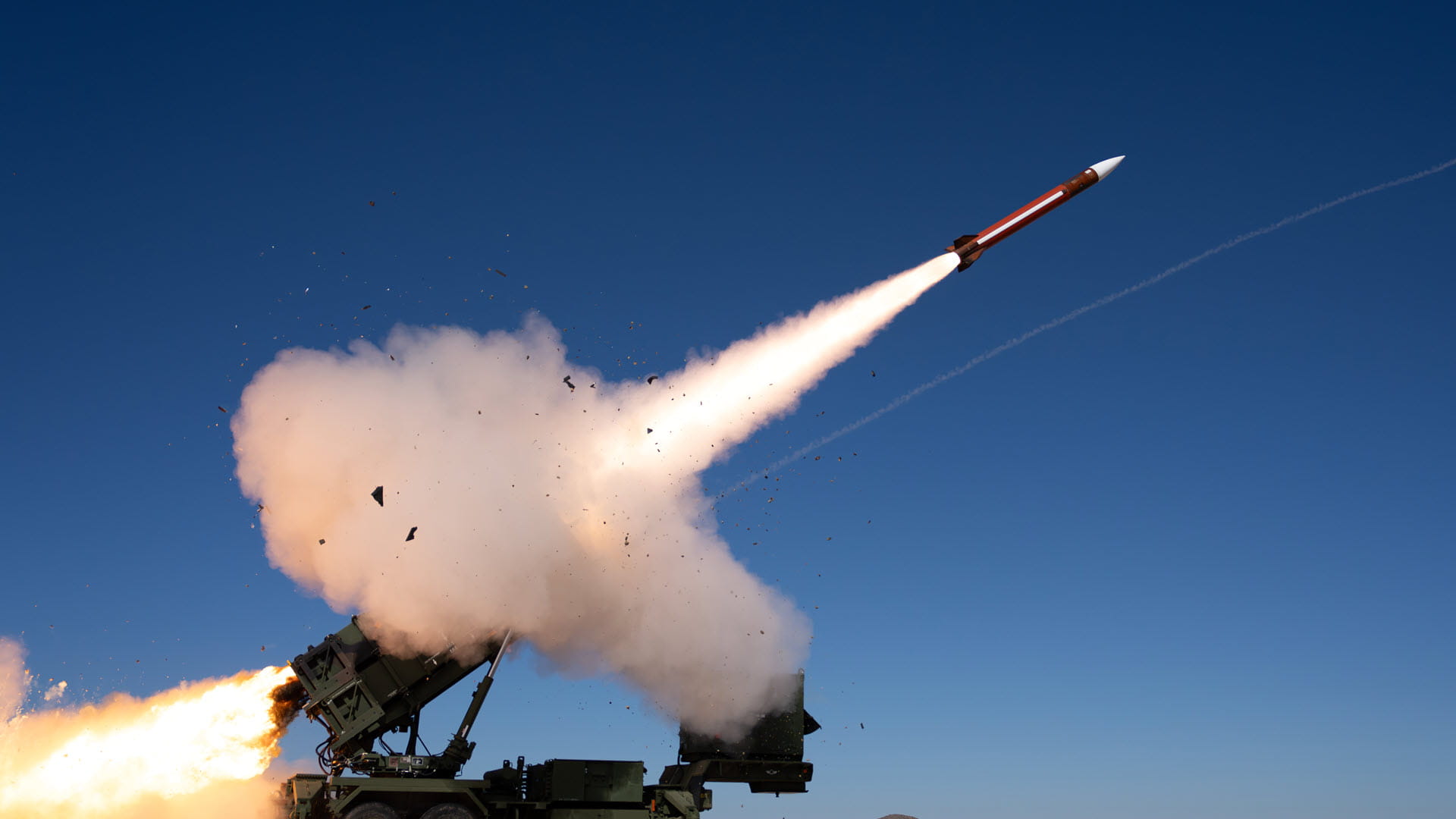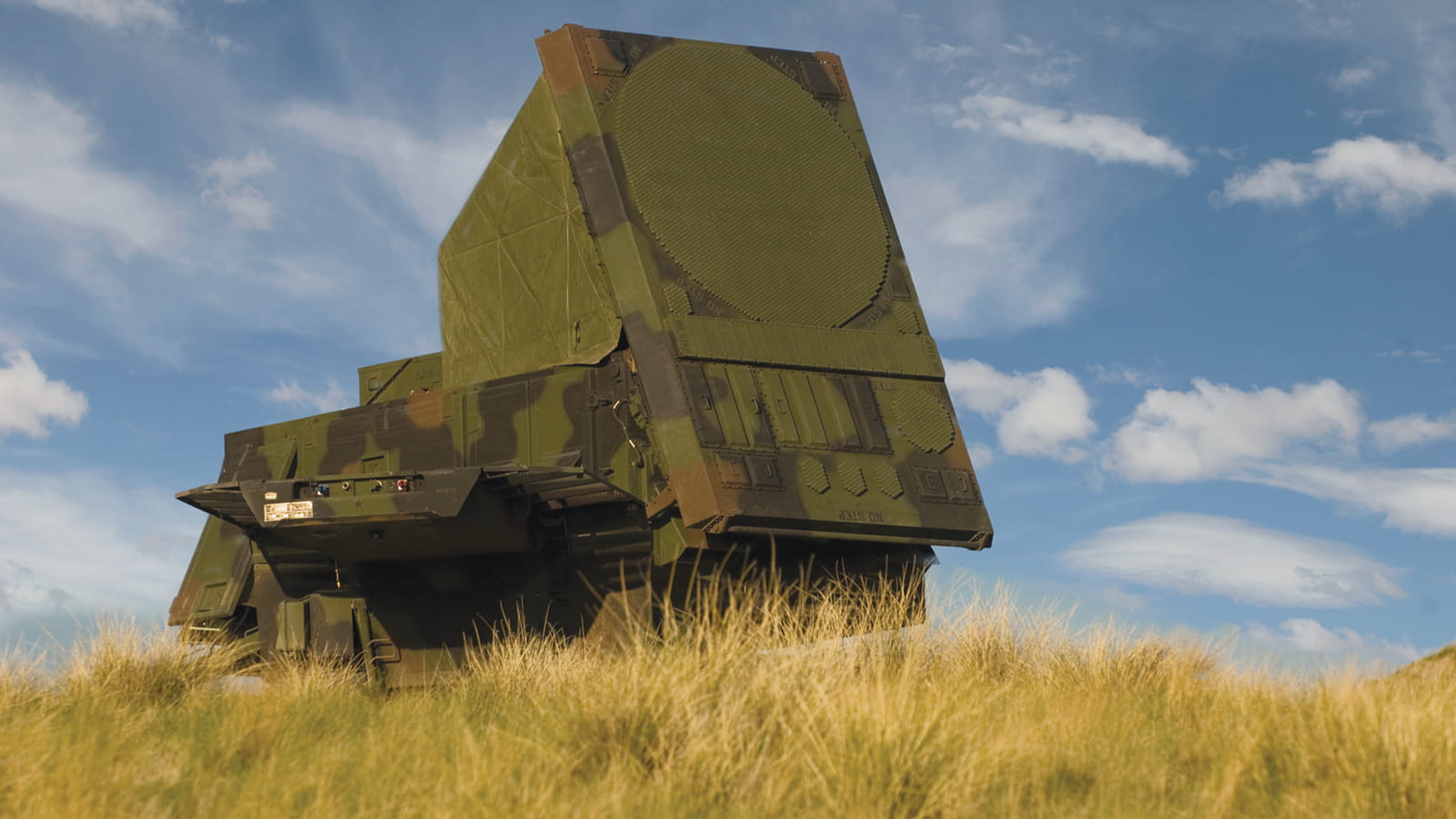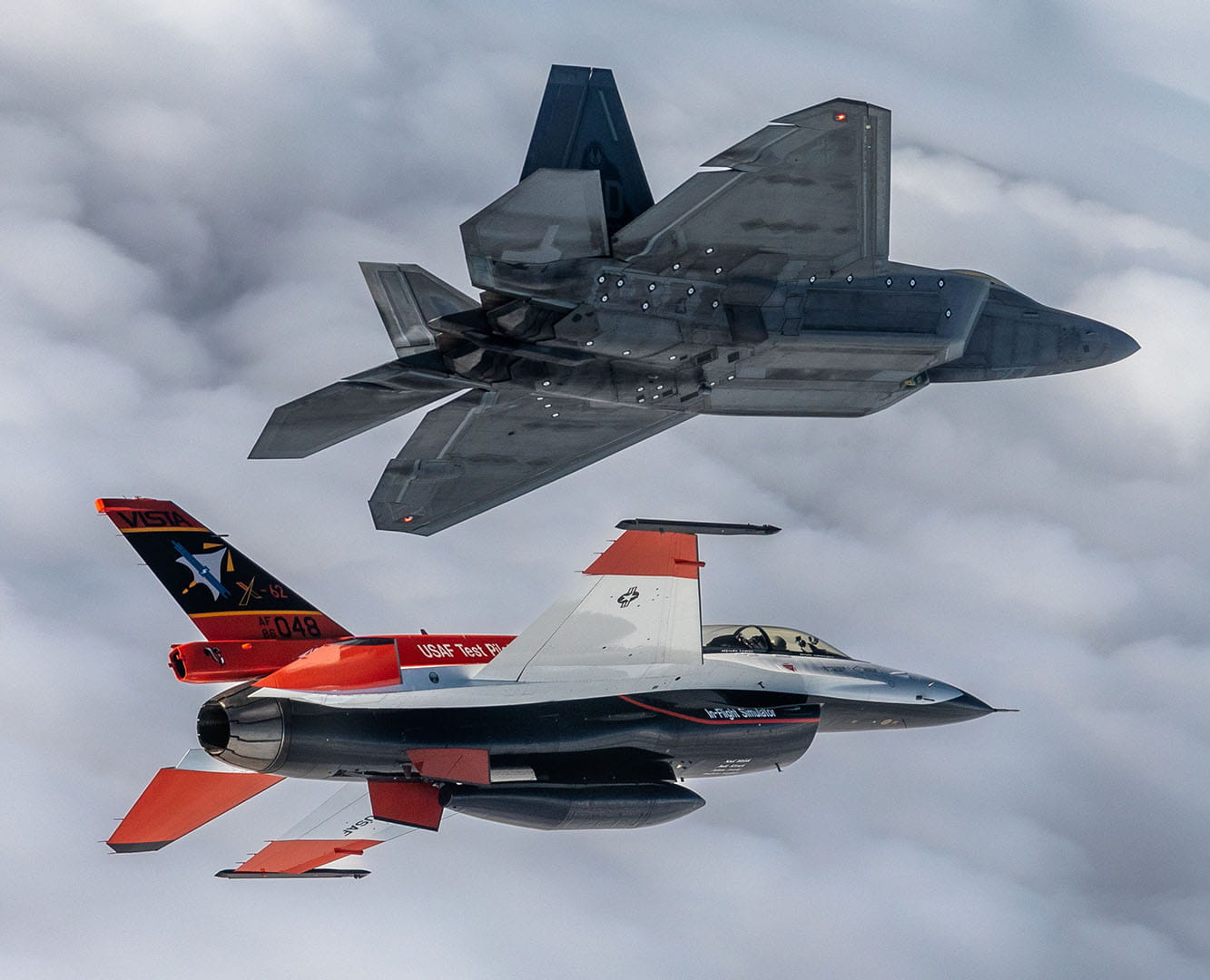Raytheon supports emerging talent in Arizona
Pima JTED, or Joint Technical Education District, offers free training to high-schoolers across 12,000 miles
If Elena Chanes Martinez hadn’t heard of Pima JTED as a high school freshman, her life would’ve been “really different,” she said. “I wouldn't want to be in the military and probably wouldn't even be into drones or robotics.”
Now a junior, Martinez is taking hands-on courses in those very subjects at Pima JTED. And, she’s determined to join the U.S. Air Force as a drone pilot. “I want to be an engineer when I grow up.”
Based in Tucson, the Joint Technical Education District covers Southern Arizona. It’s a public program that supplements traditional high school with free, intensive career training for sophomore, junior and senior level high students as well as people under 22 who are earning a GED.
Students, educators, local officials and Arizona state lawmakers along with representatives from area companies celebrated the official opening of Pima JTED’s flagship campus, the Innovative Learning Center @ The Bridges, with a ribbon cutting on Oct. 8, 2021. Among them: Raytheon, a Raytheon Technologies business and a major employer in the region, which has sponsored the school’s event center through a $100,000 grant. That contribution is part of a broader effort by Raytheon and its parent company to support STEM education and develop a new generation of innovators.
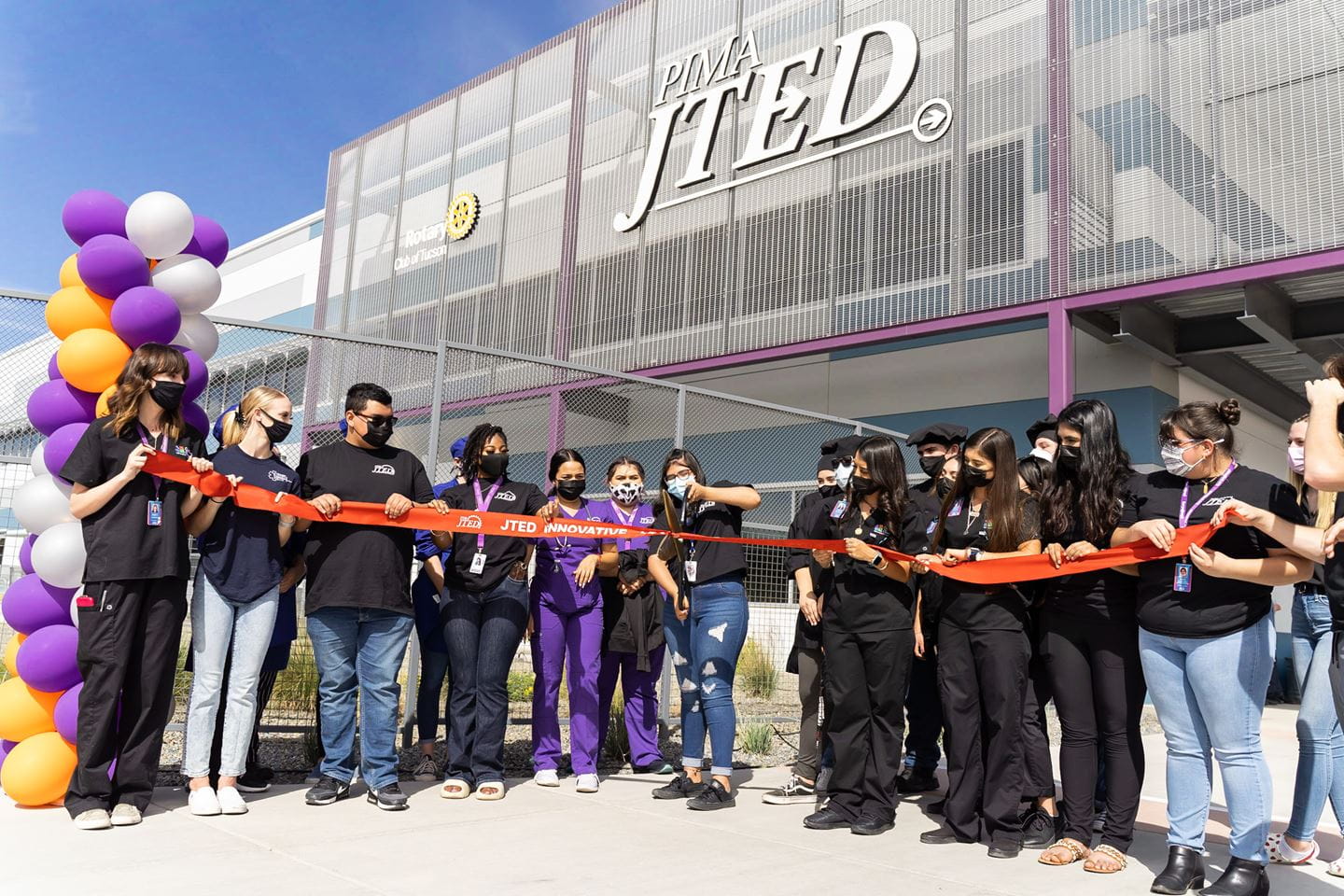
Elena Chanes Martinez (holding scissors) and her fellow students attended the pandemic-delayed official opening of the Pima JTED campus in Tucson, Arizona. (Photo: Justin Haugen)
“You can tell this building is a labor of love, and you can see the passion in the eyes of the students and the people who are making a big impact in their lives,” said Allen Couture, vice president of operations and security at Raytheon, who represented the company at the ceremony.
About 800 students take in-person day and night classes at the Tucson location, which is one of 15 central campuses the program operates in addition to 38 satellite campuses in partner public high schools. Established in 2007, Pima JTED serves 14 districts across a region of more than 12,000 square miles, according to its superintendent and CEO, Kathy Prather.
Students come from public, private, charter and home schools, and they choose from more than 60 courses in an extensive slate of subjects that includes science and engineering, business, art and design, industrial technologies and health sciences.
“It’s the modern version of what’s known as vocational education,” Prather said. “But CTE, or career and technical education, has evolved so that it’s for all students, whether they plan on going directly into the workforce, or doing more technical training beyond high school, or going to college.” There are no entrance exams, she added, and admission is through open enrollment.
“What JTED does is put these subjects on steroids,” said a Pima JTED principal, Mario Castro. “The funding that our county and state generate, combined with contributions from civic and industry partners, gives our students the maximum kind of experience that they need for their careers. That didn’t exist when I was in high school.”
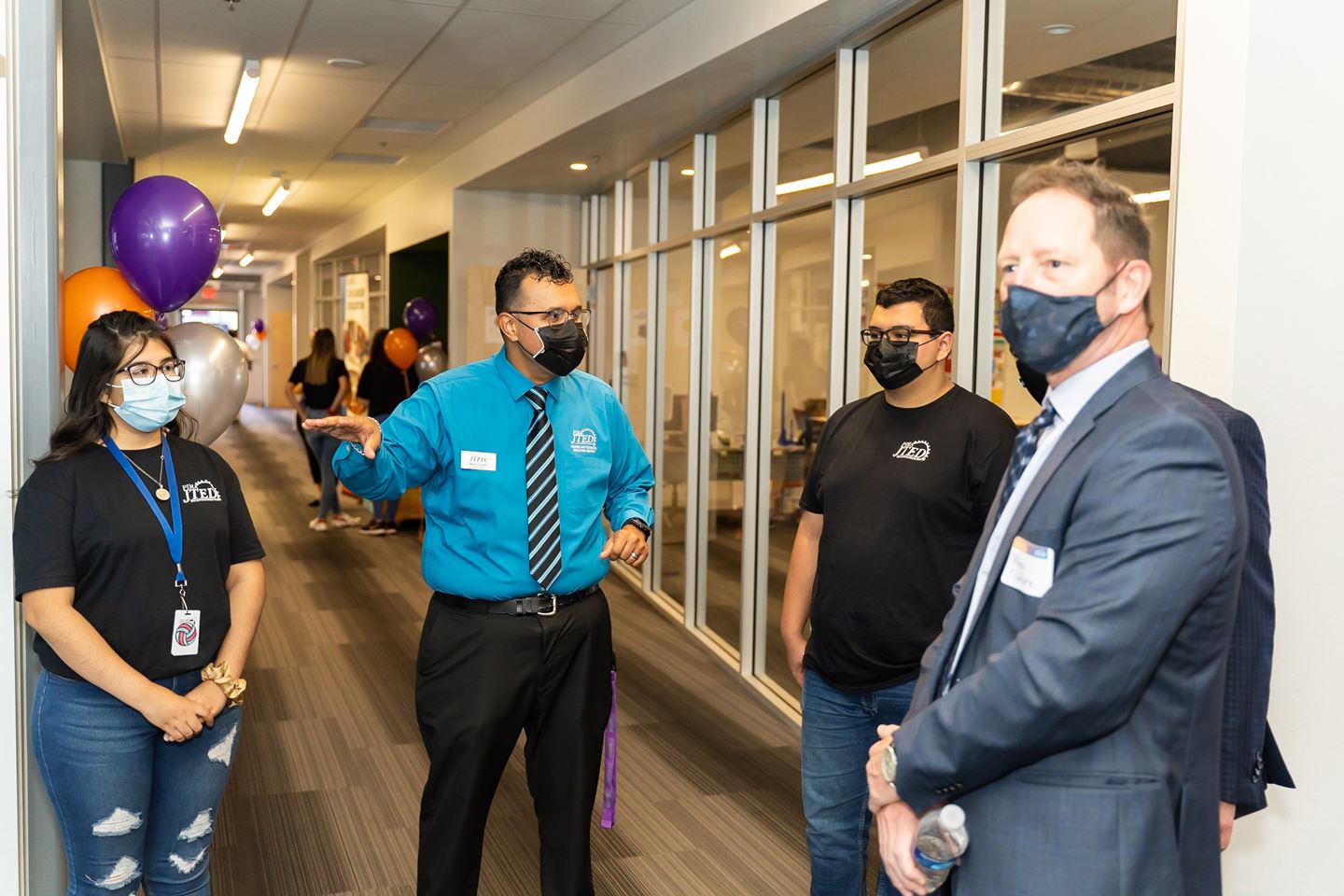
A Pima JTED principal, Mario Castro (center) with (from left) students Elena Chanes Martinez and Keven Atondo alongside Allen Couture, vice president of operations and security at Raytheon. (Photo: Justin Haugen)
JTED students receive certificates of completion, along with credit toward high school graduation and, in some cases, college credit, industry certification or a state license. Junior Keven Atondo said the program also provides opportunities to explore his career interests, including cybersecurity, 3D animation and game design.
“If JTED didn’t exist, I most likely would have stuck to my old school but looked for classes inside that district, or outside it, to help me find what I was looking for, such as the cybersecurity and game design instruction I get here for free,” he said.
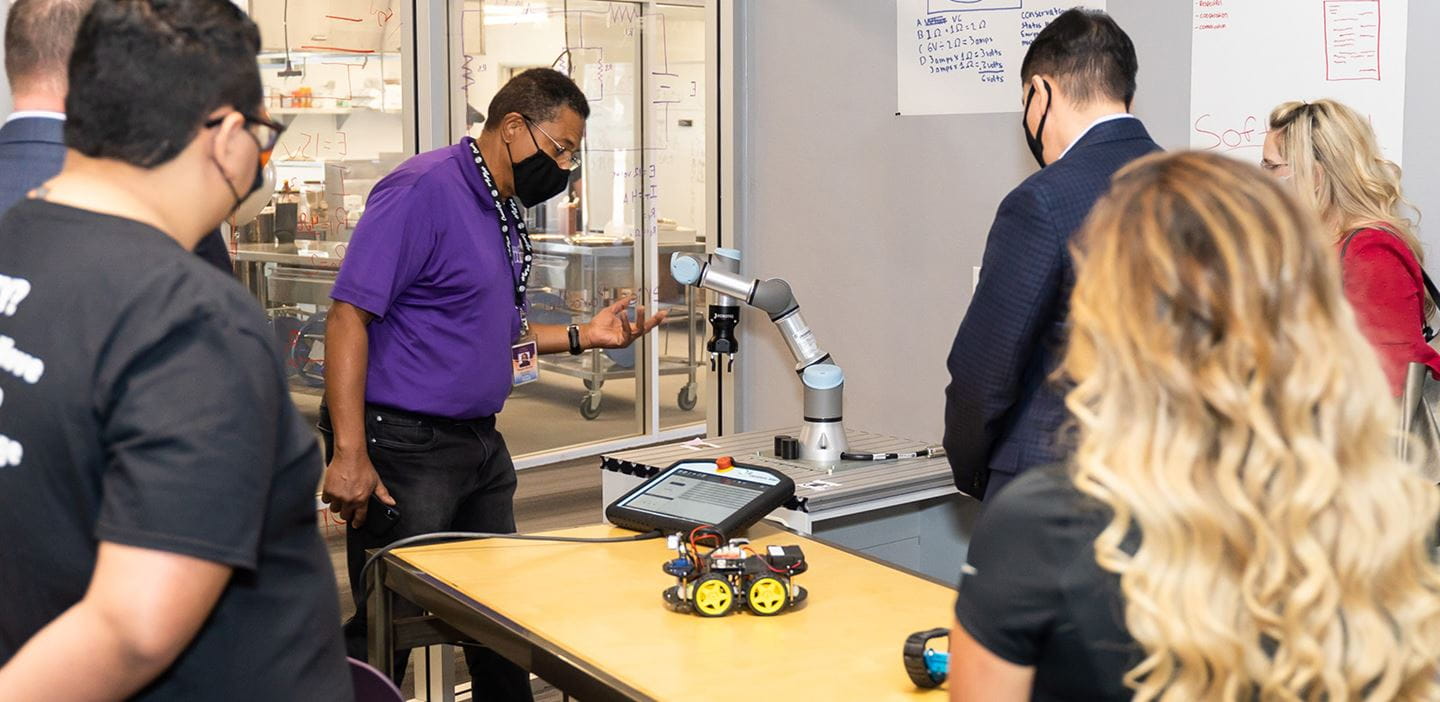
Instructor Reggie Brooks, who joined JTED after a career in industry, demonstrated an aspect of the automation and robotics course he teaches at Pima JTED. (Photo: Justin Haugen)
Students enrolled at Pima JTED still must complete core studies at their high schools. And, while many of their classmates commute there from other schools, Atondo and Martinez transferred to the Tucson Unified School District Innovation Tech High School, which leases space on the JTED campus.
“Most of our JTED instructors are former members of industry,” Castro said. “They love their craft and trade so much that they want to give back in some way. They want to share the joys of what they've experienced, and they want to give the gift of knowledge to students who may share the same passion that they do for their industry.”
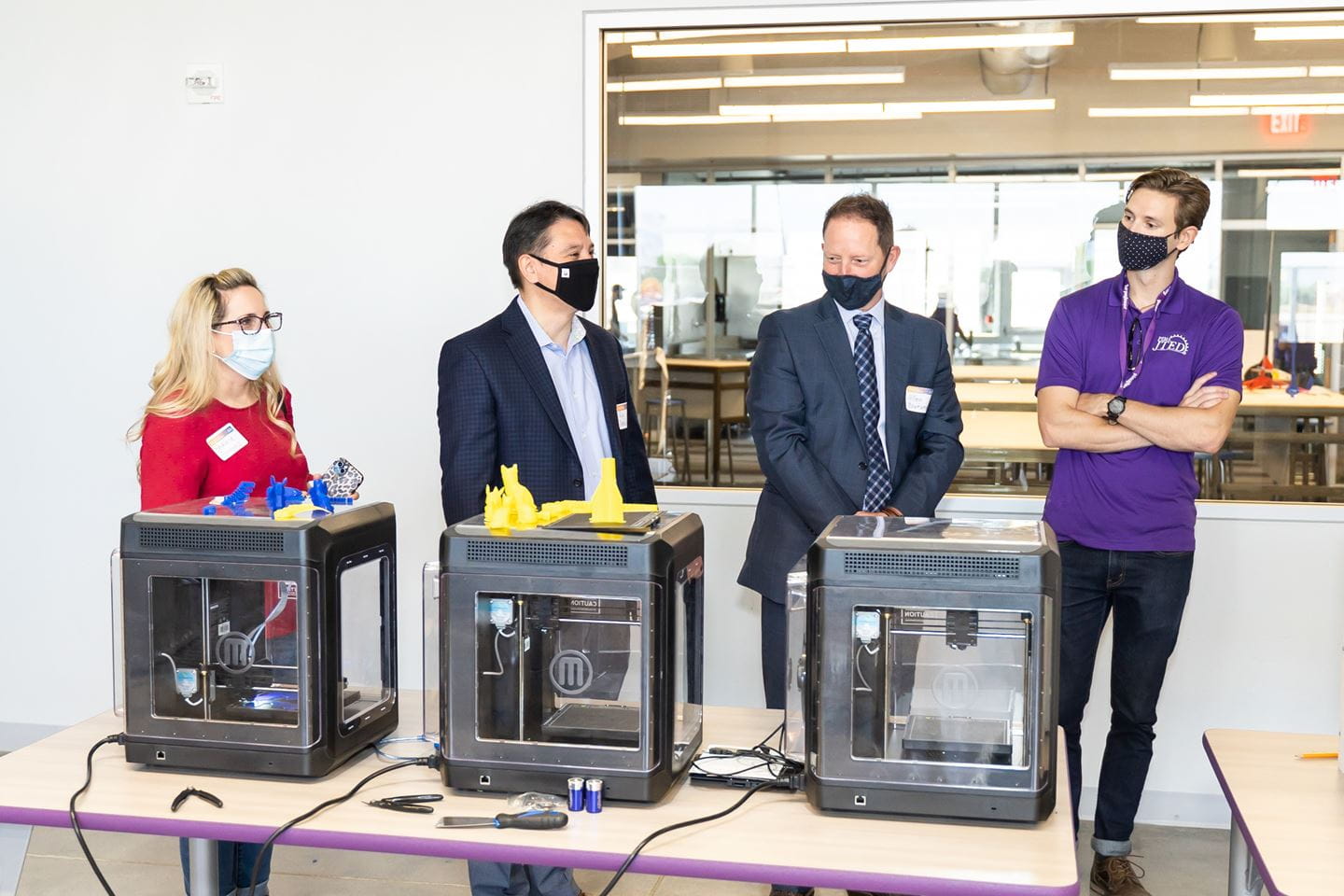
(from left) Shalane Simmons, corporate social responsibility manager for Raytheon in Tucson, with her colleagues, Director of Strategic Engagement Systems Roy Donelson and Vice President of Operations and Security Allen Couture. Quintin Minor (right), who teaches engineering at JTED, showed how the program’s 3D printers make engineering tools. (Photo: Justin Haugen)
For Couture, the JTED opening stirred memories of when he was a teenager.
“I wasn’t sure if I was going to graduate high school; it just wasn’t a thing we did in my family,” he said. “But it was the impact of a few teachers that ultimately helped me graduate, which allowed me to get into college.”
He stressed that the support from Raytheon goes beyond the grant for the Raytheon Event Center – it’s part of the company’s commitment to its partnership with Pima JTED.
“We’re not only dedicating money,” Couture said. “We’re also dedicating our people – employees who will mentor the students, help them understand how industry operates, what we do and how it relates to the learning that’s happening here.”

